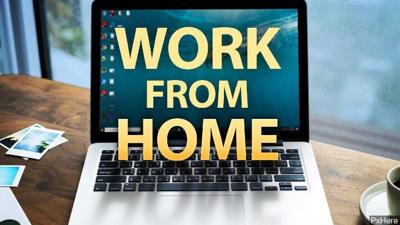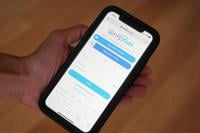(WSIL) -- COVID-19 concerns have forced many businesses to get creative to keep their employees on the job. Many people have traded offices and board rooms for online meetings from their couch.
Experts say cybersecurity must be a top priority for all involved.
GETTING ONTO YOUR OFFICE NETWORK
"They're remoting into a computer in the network, or they are connecting some other way, so they can continue to work--access files on the network. They're doing that, and most people's home network isn't very secure," said Steve Quinn with Northbridge Professional Technologies.
"It's really important to make sure that whatever method you are using to access information at your office is secure because if not than you are basically exposing your entire office network to vulnerabilities and hackers, those kinds of things," he added.
VIDEO CHAT PLATFORMS
In early April, the about online video chat platforms like Zoom.
While the technology isn't new, experts say many more people are using the services than ever before.
Hackers are taking advantage, and in many cases, they have the ability to listen in, view, or even jump into unsecured meetings.
"If you are using a platform or in a situation where you are governed by any regulations, like or banking regulations, those kinds of things, you have to make sure that the platform you are using is secure and encrypted from end to end," Quinn said.
Some platforms don't have that security. If your business wants to use the services to stay connected, it's important to learn which are the most secure.
INCREASED RISKS RIGHT NOW?
Quinn says there has been an increase of suspicious activity lately from hackers, but it likely hasn't been reported because of so much focus on COVID-19.
"There's going to be a lot of information gathering that's happening right now with the hackers who are out there getting their hands on all of these feeds and streams that they can, gathering information that they can use down the road," Quinn said
He expects there to be more reports from businesses in the months ahead. Some may not even know they'v been victims of an attack right now because so many workers are out of their offices and workspaces.
SENIOR PHOTO CONCERNS
Many people have joined in an online push to support high school seniors by adding their own senior photo to Facebook or other social platforms using #classof2020.
The saying hackers could take advantage of the hype surrounding the cause.
Quinn says it's all about a practice known as social engineering.
"It's where hackers will use any information you can provide through social media or any other way to identify you, and in this case, give specific information that could be used for security questions," Quinn said.
Those security questions could be linked to important data like your online banking or credit card accounts.
If you are posting personal information, it is best to limit who has access to your social media.
"You are definitely going to be much safer if you limit that information to people that you allow to view that information. That will not allow that information to get out there to the world."
STAYING SAFE ONLINE
Quinn says there are basic safety steps you should always be thinking about when it comes to your online identity and security.
Anybody can use information you have publicly available, so limiting access to your social networks is a best practice.
"It's always a good idea to limit what you have out there for people to see. When that stuff is out there, it is out there forever. If you have any doubts or wonder at all if you've been compromised, it's a good idea to just change your passwords," Quinn said.
WHAT'S NEXT?
Is this the new normal?
"One thing that we know and we anticipate - the new normal once this is over - is that we anticipate there will be quite a bit more people working from home permanently than have ever done that."
Steve Quinn with Northbridge Professional Technologies
While millions of Americans have been working from home during the pandemic, there are many people still heading to work everyday.
If working remotely becomes the new normal, Quinn says many people are going to have to get serious about being smarter online.
"It's going to be a change long-term that's going to require people to think about security in ways they haven't done that before."
















